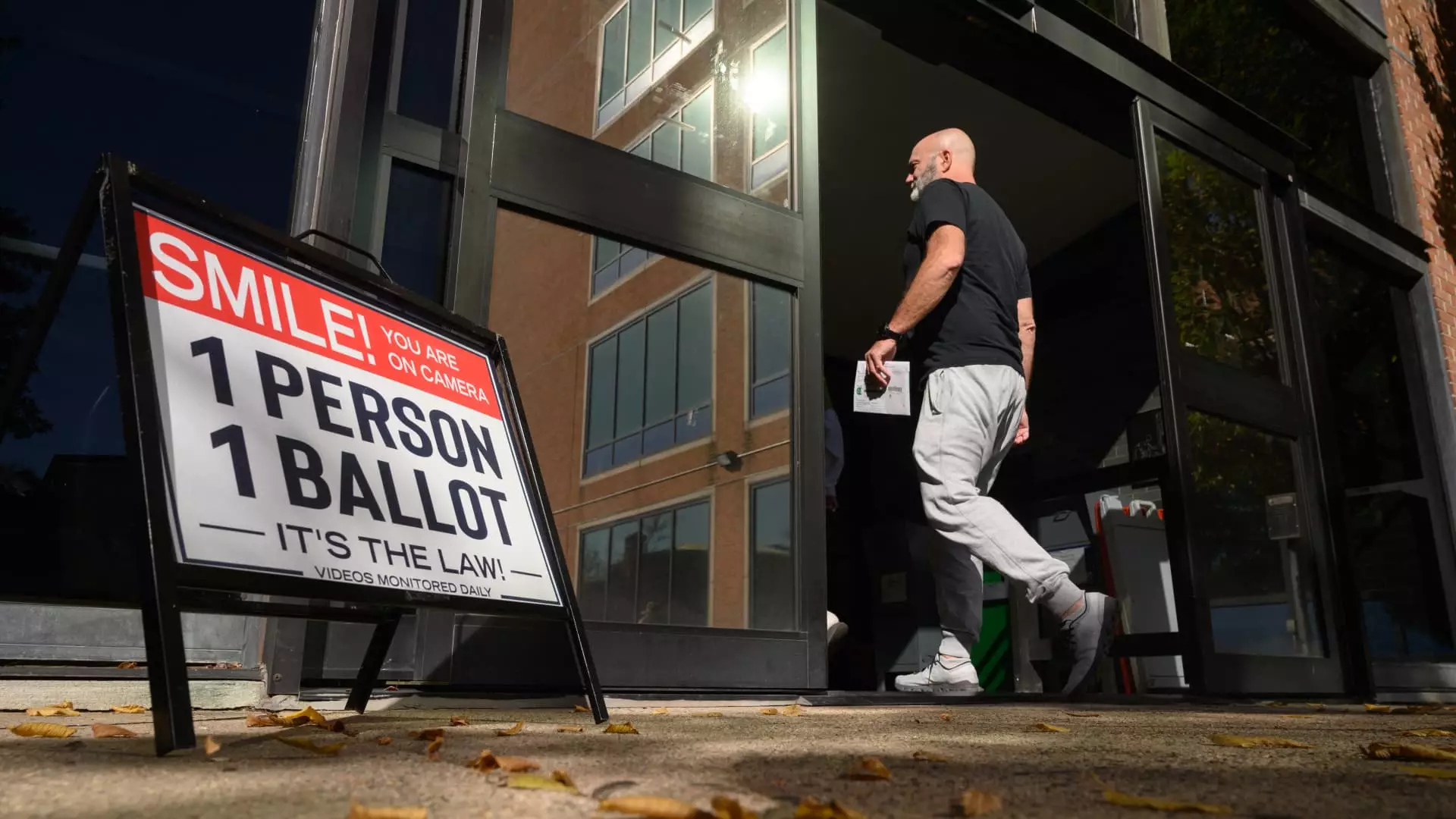On a consequential Friday, the Supreme Court handed down a significant ruling that has stirred the political landscape, particularly impacting Republican strategies in Pennsylvania. The Court decided to maintain a Pennsylvania Supreme Court ruling that allows voters whose mail-in ballots encounter issues to cast provisional in-person ballots instead. This decision came without dissent from the justices, suggesting a broad agreement on the procedural handling of these ballots. Justice Samuel Alito, despite his conservative leanings, stated that the situation was of “considerable importance” but did not warrant immediate intervention, aligning with Justices Clarence Thomas and Neil Gorsuch.
The case emerged from the aftermath of the Democratic primary in Butler County where two ballots were identified as potentially defective. While the Supreme Court’s refusal to engage at this moment does not settle the matter entirely, it raises the potential for further legal skirmishes, especially as the crucial general election approaches.
The ramifications of this ruling could be extensive, particularly if upcoming elections yield narrow margins, a common scenario in swing states like Pennsylvania. The uncertainty lies in the number of ballots that could fall under this ruling’s influence—potentially thousands. Although many counties have pre-emptively implemented measures allowing voters to submit provisional ballots when issues arise, a patchwork of rules still persists, leading to significant electoral disparities.
Republicans raised strong objections, arguing that this ruling undermines strict state laws, which they believe require all ballots failing to meet specific standards be rejected outright. Their interpretation suggests that even minor deficiencies—such as a missing signature or improper dating—should lead to disqualification. This viewpoint aligns with previous assertions from conservative circles that emphasize stringent voting laws to prevent voter fraud, an issue that has perpetuated divisiveness within the voting community.
The ongoing litigation has brought to the fore legal questions surrounding election authority and legislative power. Republicans contend that Pennsylvania’s high court ruling infringes upon the prerogatives of the legislature to define electoral processes. This argument hints at the larger ideological skirmish over election laws, epitomized by the “independent state legislature” theory. While last year’s Supreme Court ruling seemed to rebuff this theory, it remains a significant talking point for advocates pushing for tighter electoral oversight.
As Pennsylvania braces for the 2024 elections, the GOP’s legal maneuvers appear to stem from an overarching concern about election integrity, echoing sentiments from the 2020 elections where then-President Donald Trump frequently contested mail-in voting’s legitimacy. The Republican National Committee’s involvement indicates a strategic pivot towards ensuring strict adherence to election laws, aiming to counter perceived vulnerabilities that could be exploited by Democratic campaigns.
Significantly, the broader context of these elections intertwines with national narratives on voter suppression and electoral integrity, particularly as recent elections have seen an influx of legal challenges intended to reshape voting rules. The narrative positing widespread fraud has been a cornerstone of Republican rhetoric following the 2020 elections, culminating in investigations and extensive litigation. However, such claims have been repudiated by multiple sources, including various courts, which have consistently found no substantive evidence to support claims of widespread voter fraud.
This latest case underscores the potential for recurring tensions in Pennsylvania—a state that narrowly leaned Democrat in the 2020 elections, where Joe Biden’s victory was marked by a mere 80,000 votes. The ongoing strife reveals deeper systemic issues at play as both major parties work within an increasingly polarized environment.
As we move towards the 2024 elections, the implications of the Supreme Court’s decision could extend beyond just Pennsylvania. The state serves as a litmus test for broader electoral disputes that reflect ongoing tensions in American democracy. The outcome of these battles will likely set precedents for how voting rights are interpreted across the nation, potentially influencing legislative efforts to expand or restrict access to voting.
The Supreme Court’s ruling this past Friday is far more than a simple legal procedural decision; it encapsulates a broader narrative about the sanctity of the electoral process and the contentious landscape of American politics. As discussions about voting and electoral integrity evolve, the influence of this decision will continue to ripple through the political fabric, shaping not only the immediate electoral scenario but also the long-term governance and democratic ethos of the United States.


Leave a Reply